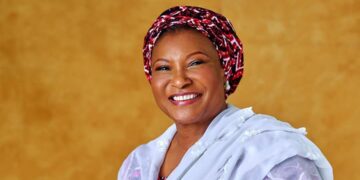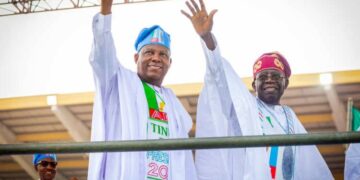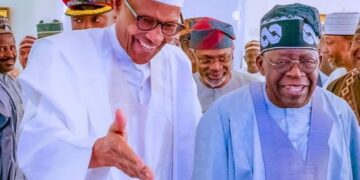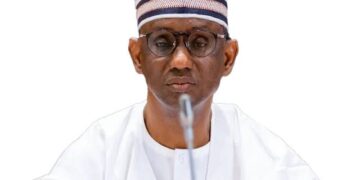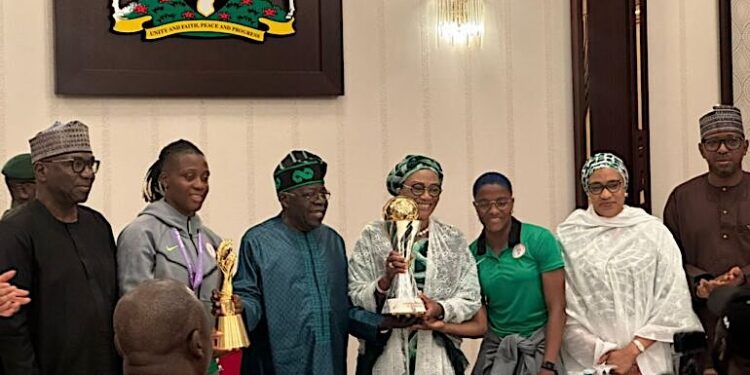Nigerian Football: Is The Falcon Mightier Than The Eagle?
Jeff Godwin Doki Ph.D
Africans have always had a philosophy of great depth and value. And they also have poetry and stories closely associated with Africa’s flora and fauna. In Nigeria, like in many other parts of Africa, animal characters and names are frequently chosen from the animal kingdom, sometimes for symbolic meanings or for sheer wit and valuable didactic lessons. It is for this reason that the two national football teams in Nigeria carry the names of two big birds namely: the Super Falcons, for the female Nigerian team, and the Super Eagles for their male counterparts. Coincidentally, the falcon and the eagle have many things in common. For one thing, both are birds of prey. For another, both birds have sharp talons. Thirdly, and most importantly, the two birds metaphorically represent strength and power meaning that they have the capacity to devour other animals. So, the question is which of them is stronger? This is the theme of my story and let me quickly pluck its fruit.
Although folk male football existed as early as the Medieval period, the game of football began to be standardized in Britain in the 19th century and the first official football match for men was played in November, 1872. When football began, it was considered to be a preserve of men. So, it could be perceived that the roots of prejudice against women have long been embedded in Western culture. As a matter of fact, such gender discrimination began with the Biblical narrative that places the blame for the fall of humanity on Eve, not Adam. Similarly, ancient Greek scholars and philosophers like Aristotle abetted this attitude when he wrote that ‘the male is by nature superior, and the female inferior; and the one rules and the other is ruled’.
Following Aristotle’s example, religious leaders like Thomas Acquinas and St. Augustine declared that women are ‘imperfect and weak creatures’.
It was in the 1700s that female voices began to cry out against such patriarchal opinions asking women to stand up for their rights and not to allow their male-dominated society to define what it means to be a woman. Female football, which emerged in 1881 was, therefore, one of the reactions against patriarchal assumptions that women are inferior to men. By the year 1904, it became apparent that the game of football was not to be played by men alone. And by the 1970s Patricia Palinkas became the first woman to play professional football.
Moving away from the game of football, women have played heroic roles in other aspects of human life like soldiering, governance and the fight against injustice. Perhaps a brief look at Nigeria’s history would be insightful. First is Inikpi of Igala. History has it that she gave her dear life in order to liberate her people (the Igala) from the attacks of the Jukun. Second, is Queen Amina of Zazzau. It is on record that she established the Hausa Empire in the sixteenth century. Next on the line is Idia of Benin Empire. According to History books, Idia was a true soldier. Her greatest achievement was her victory over the Igala. Perhaps, it is because of her bravery that the FESTAC 77 symbol bears her face.
Again, there is Moremi the spy. She infiltrated the ranks of the Igbos and allowed herself to be captured. While she was with her captors, she learnt their tricks and tactics. It was these secrets that she divulged to her people enabling them to have victory over the Igbos. Furthermore, there is Queen Kambassa of Bonny. Just like Idia of Benin, she was a queen warrior. She was not just a soldier but she personally led battles conquering neighboring kingdoms. Besides, some Nigerian historical heroines did more than fight and win battles, they also resisted injustice and tyranny. We find this in the precise character of Madam Tinubu. A study of Nigerian History reveals that she confronted African chiefs who were stooges of the white man. Moreover, she fought tirelessly to ensure that Oba Dosumu (the rightful heir) was enthroned. Here again, she calls to mind Emotan, who laid down her life for Ogun, the rightful heir to the throne of Benin, to be enthroned. Madam Tinubu’s name is printed in gold especially in the History of Lagos.
Think about the Aba Riots of 1929 in which many Ibo women came together to express their grievances against the colonial government and to assert their right, dignity and humanity. There is Funmilayo Kuti. Apparently, her role was to encourage women to participate actively in politics. And least her credentials suggest this. In the then Western region, she was the Regional President of N.C.N.C women organization. She was also President General of Nigerian Women Union and Abeokuta Women’s Union. She was a dogged and staunch fighter for the rights of Nigerian women. Hajia Gambo Sawaba, is Funmilayo’s exact counterpart in Northern Nigeria. According to history books, Gambo Sawaba broke all cultural taboos and joined active politics. Her involvement in politics was not only an achievement, it was also a feat because in Northern Nigeria, religious beliefs, barred women from participating in politics. Gambo Sawaba defied all these restrictions and became an active member of N.E.PU. Her other counterpart is Margaret Ekpo in Eastern Nigeria. The list of Nigerian heroines is as long as a railway line. And perhaps to immortalize these women, Irene Salami Agunloye, a Professor of Theater Arts at the University of Jos, has documented their heroic qualities in a play entitled More than Dancing (2003). In other words, with their victory over Morocco at the AFCON 2025, the Super Falcons have confirmed that the role of women is more than that of dancing and by means of their winsomeness and beauty, women can turn weakness into might.
Fast forward to the present. There is Ngozi Okonjo-Iweala an economist and former foreign affairs minister in Nigeria. Since March,2021, she has been serving as the Director-General of the World Trade Organization. But more than that, she is the first woman and the first African to lead the WTO as Director-General. What about Professor Nnena Oti, the Vice Chancellor of Federal University of Technology Owerri? She gained national prominence as the INEC Returning Officer in March, 2023, when she rejected bribe, refused to be intimidated and to compromise. She became the heroine of Nigeria’s democracy.
Lest, I am accused of been a misandrist, I hasten to add that there is nothing too good that does not carry with it a few negative things. Nigerian women have also had their bad eggs. Take for example Hon. Patricia Olubunmi Etteh, a Nigerian lawyer and politician who served Nigeria as the 10th Speaker of the House of Representatives from June to October 2007. In September 2007, Hon Etteh was accused of authorizing the spending of 628 Million Naira on renovation of her official residence and that of her deputy. Africa’s first Nobel Prize winner for Literature, Wole Soyinka, was one of the most clamorous voices that called for her resignation and on October 30 2007, following intense pressure, Hon Etteh resigned her appointment.
Very recently, there is Beta Edu, a medical Doctor, former commissioner and national women leader of the ruling APC.On January 8 2024, Beta Edu was suspended from her position as the Minister of Humanitarian Affairs and Poverty Alleviation by President Bola Ahmed Tinubu for allegedly diverting 585 Million Naira, meant for that Ministry, to her personal bank account. An investigation by the EFCC was to later suggest that she had diverted over 30 billion Naira to her various personal accounts.
Back to football. The recent victory of the Super falcons in Morocco is an abundant testimony of the fact that there could be a major swap in gender roles. Truly speaking, the super falcons have etched their name in African foot ball history, securing their 10th Women’s African Cup of Nations title. All through the match, the girls showed uncommon determination, dedication and patriotism which is usually lacking in the Super Eagles who are only three times the winner of AFCON. The women staged a remarkable fight back in what many commentators described as ‘a massive turn around’ in the second half to beat host Morocco 3-2 and lift the trophy on Saturday 26th July 2025. Their latest triumph adds to an illustrious record that spans for three decades namely: in 1998, 2000, 2002, 2004, 2006, 2010, 2014, 2016, 2018 and 2025.
Over and above all, the victory of the Super falcons is a demonstration of genuine sacrifice and patriotism. Apparently, with their latest victory, the women have made Nigerians proud. The women have made history consistently and resolutely The women have demonstrated abundantly that the Falcon is indeed mightier than the Eagle.
***Jeff Godwin Doki is a writer and Professor of Comparative Literature with the University of Jos.


